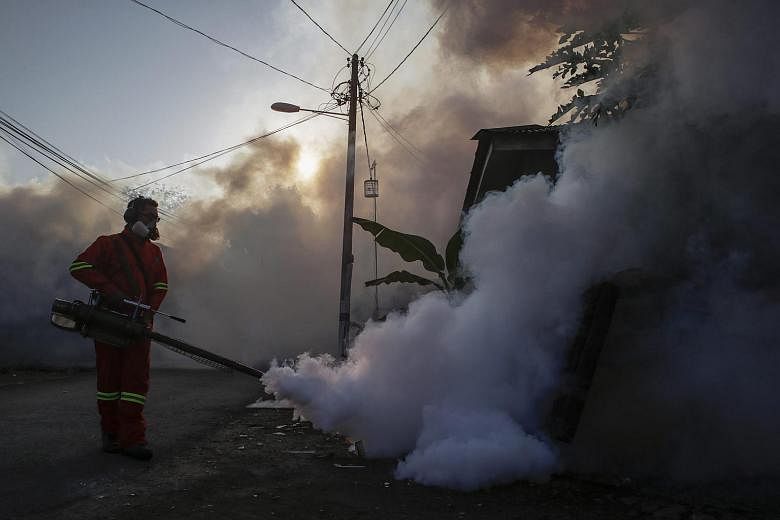Experts from 22 countries at a conference on dengue fever in Bangkok have recommended that affected countries deploy the new vaccine Dengvaxia but caution that vector control to curb the Aedes mosquito, which spreads the virus, must also remain a top priority.
Some 170 delegates at the two-day conference - the first in Asia on the vaccine developed by the pharmaceutical giant Sanofi Pasteur - were enthusiastic about the vaccine, given the growing number of dengue cases.
"The incidence of dengue has increased 30-fold over the last 50 years," according to the World Health Organisation (WHO), which classifies dengue as a "neglected" tropical disease.
"Up to 50-100 million infections are now estimated to occur annually in over 100 endemic countries, putting almost half of the world's population at risk," the WHO says on its website.
In an interview at the conference, Dr Raman Velayudhan, the Geneva-based coordinator at WHO's Department of Control of Neglected Tropical Diseases, told The Straits Times: "Essentially it is agreed that the vaccine is one strategy."
Dengvaxia, which must be taken in three doses, is effective against all four strains of dengue but to varying degrees, and targets the nine-45 years age group.
"Each country will have to design a strategy on how this will be implemented and monitored over time," Dr Velayudhan said. "It is also agreed that vector control and vaccines are synergistic; they complement each other."
Dr Tikki Pang, a visiting professor at the Lee Kuan Yew School of Public Policy at the National University of Singapore, said: "We want to send a message that people should not look at this as an alternative or a replacement for existing strategies; it should be seen as complementary.
"The last thing we want people to believe is now there is a silver bullet. Obviously, the other key strategy is controlling the mosquito and that has to continue, there's no doubt about it.
"We believe the vaccine is just part of the overall solution. The other important part is public education... and participation.
"Singapore would perhaps prefer to see other countries license it first; Singapore has invested a great deal in vector control."
In Singapore, dengue cases reached a new high of 554 in the week between Jan 3 and Jan 9, more than the 458 reported from Dec 27 to Jan 2. Cases caused by the DENV-2 serotype - one of the four strains - increased and now account for two-thirds of all cases.
The Philippines, which approved Dengvaxia just last month, will be the first country in Asia to deploy the vaccine. Brazil and Mexico approved its use last month.
Other countries, including Singapore, are likely to watch the results closely, delegates said.
The vaccine's possible drawbacks were the subject of some debate. These include its 60 per cent success rate and the question of how long immunity lasts. But "reservations should not come in the way of deploying the vaccine", Dr Pang said. "The whole world has been waiting for 70 years for a vaccine."
Dr Usa Thisyakorn, a professor of paediatrics at Chulalongkorn University in Bangkok, and adviser to four other universities and the city's Department of Health, said: "Thailand had its worst epidemic in 1987 with nearly 200,000 cases.
"But in 2015 we saw quite a high number too - 140,000. We cannot tolerate this any longer; we would like to do something better in terms of prevention and control."

